#Allah's Five Percent
Explore tagged Tumblr posts
Text

“- Indians have been waiting for Kalki for 3,700 years.
- Buddhists have been waiting for Maitreya for 2,600 years.
- The Jews have been waiting for the Messiah for 2500 years.
- Christians have been waiting for Jesus for 2000 years.
- Sunnah waits for Prophet Issa 1400 years.
- Muslims have been waiting for a messiah from the line of Muhammad for 1300 years.
- Shiites have been waiting for Mandi for 1080 years.
- Drussians are waiting for Hamza ibn Ali for 1000 years.
Most religions adopt the idea of a ���savior” and state that the world will remain filled with evil until this savior comes and fills it with goodness and righteousness.
Maybe our problem on this planet is that people expect someone else to come solve their problems instead of doing it themselves! ”
Riccardo Dablah
#nation of gods and earths#supreme mathematics#five percent nation#allah school in mecca#hip hop#5% nation of gods and earths#black women#black people#black men#latino#chicano#free palestine#free congo#Sudan#Latina#african american#reparations#father allah
132 notes
·
View notes
Text
youtube
#Nation of God's and Earths#RUFFSTARR#RootsandCulture#Hip Hop#Rap#Five Percenters#Allah#DMV#Now Why#Power Hill#Divine Cee#Victory Allah#Master Divine#Master Islam#Islam#Peace
1 note
·
View note
Text
𝑾𝒐𝒓𝒌𝒊𝒏𝒈 𝒐𝒏 𝒃𝒆𝒄𝒐𝒎𝒊𝒏𝒈 𝒚𝒐𝒖𝒓 𝒊𝒅𝒆𝒂𝒍 𝒔𝒆𝒍𝒇
𝘊𝘳𝘦𝘢𝘵𝘪𝘯𝘨 𝘢 𝘯𝘦𝘸 𝘭𝘪𝘧𝘦𝘴𝘵𝘺𝘭𝘦


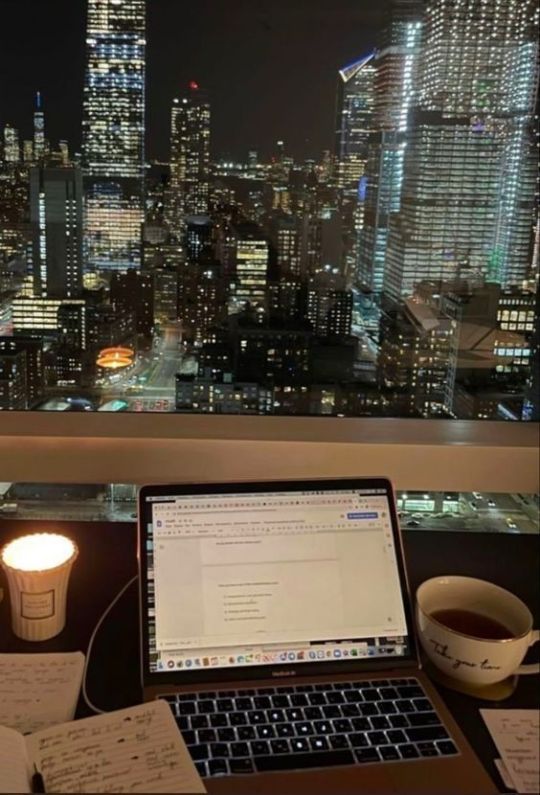
The first step to achieving a new goal; identity; a lifestyle is to overcome laziness. I am myself was and sometimes have my lazy moments; however, to really make a change and accomplish the goals you desire first starts with changing your current lifestyle to the one you want; the person you want to become; and to work hard for the goals you want.
Of course, with that being said, do not change your whole lifestyle in one day. That is overwhelming and impossible, you will just go back to your old ways and become worse. Others say to have a new goal each day; however, for a more stable and consistent change, have a new goal every month. For instance, this month you will focus on balancing your meals; and then the next month is to be consistent through your sunnah namaz.
Each time you make these monthly goals, it shifts your one percent better than before. And as always be kind to yourself if you ever fall back or feel like giving up. Change can be difficult and that is why it is also important to go at your own paste even if that monthly goal turns to a year. Try your best and have faith in yourself!
Inshallah these steps help you!
𝑭𝒐𝒄𝒖𝒔 𝒐𝒏 𝑨𝒍𝒍𝒂𝒉

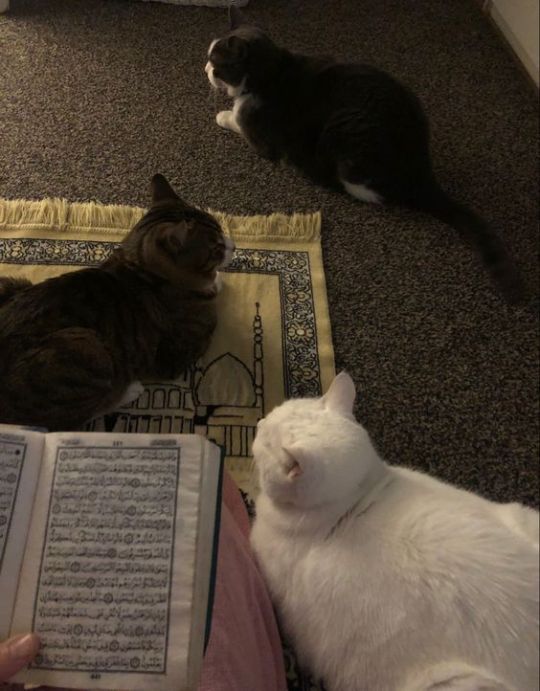

When you begin to prioritize Allah subhanahu wa ta'ala I swear your life changes. You begin to have inner peace, confidence, a burst of imaan and happiness. No matter who you are, no matter what your past is, dont ever let it stop you from becoming closer to Allah the Almighty.
We all have a past, guilt, a deed we committed that we are not proud of. But let me tell you something, Allah forgives every sin, Allah loves those who repent and try to change, Allah subhanahu wa ta'ala forgive those even if they sinned their whole lives, and Allah subhanahu wa ta'ala loves us no matter what.
So, who are you to say you are not worthy of forgiveness? I heard doubting your lord's mercy is a sin itself. That just shows how much our lord loves us, how merciful Allah subhanahu wa ta'ala is.
I sometimes do have that feeling of me not being able to be forgiven but please remind yourself how much of a merciful lord we have that even if we repent just now, we are forgiven.
The most important steps to focus on Allah subhanahu wa ta'ala and be better is to do the following:
Be consistent and on time with your five daily prayers (Fajr, Dhuhr, Asr, Mahrib, and Isha)
I know Fajr is hard for others or any of the prayers; However, try your best and pray to Allah to make it easier for you, to be consistent, to be engaged in prayer and to connect with it too, Start by setting up an alarm for each of the five prayers, strengthen your imaan by looking up the benefits of the five daily prayers; perform wudhu 10-15 minutes before (I tried this and it definitely made it easier for me to be on time and to be more engaged in namaz).
Perform Dhikr (Whether you have tesbih or the tesbih counter, always repeat Allahs most loved words like Subhanallah; Alhamdulilah, Allahu Akbar; La illaha Ilalah; Agstafurillah, and the 99 names. Even when you are working or at school--no matter where you are repeat these words as they are light on the tongue but heavy on the scale.)
Read the Quran (Sometimes life gets in the way, and we become very busy and that is why I recommend downloading a Quran app so no matter if you're at school or not you can read an ayat or two which is still heavy on the scale. And also learning how to read the Quran. No matter what level you are on learning how to recite the Quran, try your best and know that you can do it!)
Perform goodness (Try your best to give up those bad habits, those bad deeds and replace them with good ones. No matter how big or small those good deeds are, always be consistent with them.)
Make dua (For everything I listed, always make dua to make it easier for you, to ask for the things you want and need, and of course before you even ask for anything always repent and ask for forgiveness, as your lord is the most forgiving)
𝑪𝒉𝒂𝒏𝒈𝒆 𝒚𝒐𝒖𝒓 𝒎𝒊𝒏𝒅𝒔𝒆𝒕



Mindset is everything! Shift your mindset to a positive one! stop thinking that you deserve every bad event. Stop thinking that bad incident was the end of it all; or how that rejection you got is the end to your happiness.
There is something I stand by and believe, and that is whatever did not work out for you is an opportunity for something better to happen.
Regardless of what is happening in your life right now, just know it is a test, a test that Allah subhanahu wa ta'ala is making you go through because why? Allah subhanahu wa ta'alaloves those he tests and is going to grant something way better. What you need to do is for you to believe something better will happen and to never give up.
Along with changing your mindset--change your mind set about yourself as in stop thinking your this and that, that your "ugly" or "weak". First of all, your beautiful and beauty should not define your inner beauty. Change the way you view yourself, just like affirmations think and believe you are beautiful, your amazing, successful, smart, and going to achieve your goals.
When you start to think of yourself as the person you want to become--you start to become that ideal identity. As you think about how beautiful you are, your face becomes more brighter, or how you began to think on how smart you are, you begin to work harder. Believe it or not but mindset is number one in taking action for change so please think good about yourself and life and shift those bad events to better opportunities.
𝑪𝒉𝒂𝒏𝒈𝒆 𝒚𝒐𝒖𝒓 𝒄𝒉𝒂𝒓𝒂𝒄𝒕𝒆𝒓



Character is very important! By changing and improving your character, it overall changes your how you act and think. Character in islam is especially talked about. Following how our Prophet Muhammed sallallahu alaihi wasallam used to speak and his mannerism is an excellent example we should all follow.
Speak softly and to not speak unnecessary words (gossiping, lying, swearing)
Appear approachable (Have a positive demeanor and stop glaring at others!)
Have manners (Fix your posture, know your limits, and be polite)
Smile (Its sunnah!)
Know your limits (As mentioned before, being polite and to smile often; however, there are some people who take kindness the wrong way so make sure to be kind but you don't always have to be that cheerful bear. Make sure you are comfortable and know when to say no.)
𝑺𝒕𝒖𝒅𝒚
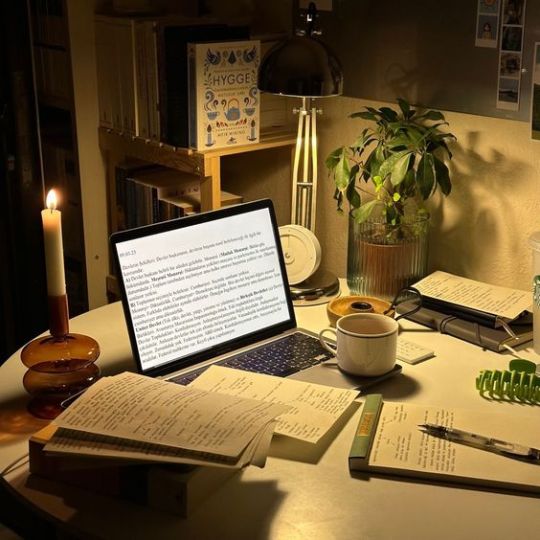
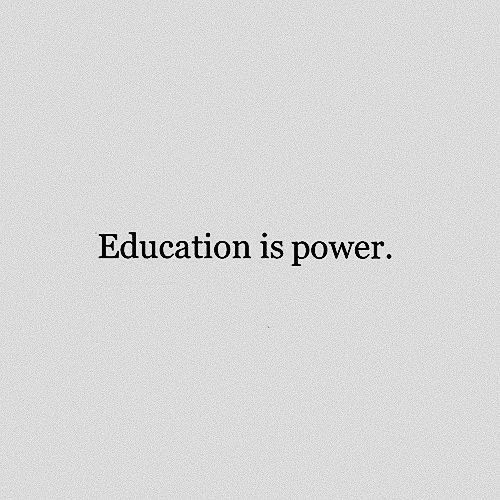

Education is soooo important!
I know some people hate school and listen I hated school too but! School is so important--education is. Jobs now days only look at your education history and whether you have a diploma or not, which is why you should focus on your studies and go to school!
Others, including me, have had no idea what to study--what to become and at times like that it is very hard and discouraging and I understand. I finally applied to college after finding a program where it did not seem too hard, and it seemed like a program that I could like.
That being said, if you are having trouble to find a career path to pursue, write down your skills, what you're interested in, and what you are good at. For instance, you like to write and like to talk to others--consider Office Administration as you are required to write a lot. Point is, find your passions and research what career you could put your passion in to. And trust me, it won't be easy (pray and make istikhara which career path to take) but I believe we will all figure it out and find that career inshallah.
Take advantage on the ability to be able to study and get that education!
I hope this helps!! and remember to have a good day!
#aesthetic#affirmations#becoming her#becoming that girl#deenislam#deenoverdunya#girl blogger#glow up#health and wellness#healthylifestyle#manifesation#manifesting#muslimah#islampost#islamdaily#islamicquotes#islamic#quran#that girl#it girl#girlblogging#tumblr girls#clean girl#glowup#this is a girlblog#positivity#positive affirmations#positive thoughts#girl boss aesthetic#dream girl
92 notes
·
View notes
Text

RAKIM
William Michael Griffin Jr., better known by his stage name Rakim (born January 28, 1968), is an American rapper. One half of golden age hip hop duo Eric B. & Rakim, he is widely regarded as one of the most influential and most skilled MCs of all time.
Rakim is the nephew of the late American R&B singer and actress Ruth Brown. He grew up in Wyandanch, New York on Long Island, and became involved in the New York City hip hop scene when he was eighteen years old.
Rakim, then known as Kid Wizard in 1985, made his first recordings live at Wyandanch High School. Rakim was initially introduced to the Nation of Islam in 1986, and later joined The Nation of Gods and Earths (also known as the 5 Percent Nation), and adopted the name Rakim Allah.
ERIC B. & RAKIM
First meeting in 1985 after Rakim responded to Eric B.'s search for "New York's top MC", Eric B's friend and roommate Marley Marl allowed them to use his home studio. In 1986, Eric B. brought him to Marley Marl's house to record "Eric B. Is President".
Eric B. and Rakim went on to release four studio albums before their separation in 1992. The duo were described by journalist Tom Terrell of NPR as "the most influential DJ/MC combo in contemporary pop music period", while the editors of About.com ranked them as No. 4 on their list of the 10 Greatest Hip-Hop Duos of All-Time. They were nominated for induction into the Rock and Roll Hall of Fame in 2011, although they did not make the final selection.
The first track they recorded—"Eric B. Is President"���was released as a single on the independent Zakia Records in 1986. After Def Jam Recordings founder Russell Simmons heard the single, the duo were signed to Island Records and began recording the album in Manhattan's Power Play Studios in early 1987.

On July 7, 1987, the duo released their debut album, Paid in Full, on the Island-subsidiary label 4th & B'way Records. The album peaked at #58 on the Billboard 200 chart and produced five singles: "Eric B. Is President", "I Ain't No Joke", "I Know You Got Soul", "Move the Crowd", and "Paid in Full".[16]Eric B. & Rakim's album Paid in Full was named the greatest hip hop album of all time by MTV in 2006, while Rakim himself was ranked #4 on MTV's list of the Greatest MCs of All Time. Steve Huey of AllMusic stated that "Rakim is near-universally acknowledged as one of the greatest MCs – perhaps the greatest – of all time within the hip-hop community."
The editors of About.com ranked him #2 on their list of the 'Top 50 MCs of Our Time (1987–2007)'. Rakim began his career as the emcee of the rap duo Eric B. & Rakim, who in 2011 were nominated for induction into the Rock and Roll Hall of Fame. In 2012, The Source ranked him #1 on their list of the "Top 50 Lyricists of All Time.
SOLO CAREER
After his breakup with Eric B. in early 1993, Rakim kept a low profile, only making one notable appearance on the soundtrack to the 1993 film Gunmen. A reshuffling in MCA caused Rakim to be dropped from the label in 1994. As Rakim continued to struggle with legal problems, he secured a deal with Universal Records and began recording his solo debut album The 18th Letter in 1996. In November 1997, the album The 18th Letter was released. Expectations were high for Rakim, as the album debuted at #4 on the Billboard 200 and went certified Gold by the RIAA.
In June 1999, Rakim appeared on three tracks of "The Seduction of Claude Debussy" by Art of Noise. AllMusic's Keith Farley notes that "the album charts the artistic use of sampled breakbeats -- pioneered by the Art of Noise themselves -- with nods to '80s hip-hop plus their '90s equivalent, drum'n'bass."

Rakim performing in Hamburg, Germany, June 3, 1998
In November 1999, Rakim released The Master, which received good reviews but sold poorly.
Rakim was signed to Dr. Dre's Aftermath Entertainment record label in 2000, for work on an album tentatively titled Oh, My God. The album underwent numerous changes in artistic direction and personnel and was delayed several times. While working on the album, Rakim made guest appearances on numerous Aftermath projects, including the hit single "Addictive" by Truth Hurts, the Dr. Dre-produced "The Watcher Part 2" by Jay-Z, and Eminem's 8 Mile soundtrack.
However, Rakim left the label in 2003 and Oh, My God was indefinitely shelved. After Rakim eventually left Aftermath Entertainment, he stated that the reason he departed the label was because of creative differences with Dr. Dre. Rakim used a metaphorical example that Dr. Dre wanted Rakim to write about killing someone, while Rakim wanted to write about the resurrection of someone.
7 notes
·
View notes
Text
Key Developments
Palestinians entered 2024 with demonstrations in the occupied West Bank calling for an end to the Israeli carnage in Gaza, as thousands throughout the world joined a call for a ceasefire as the clock struck 12.
As some countries canceled New Year’s Eve celebrations, others, like Turkey, saw mass gatherings in solidarity with Palestine. Activists in the U.S. are calling for a national week of action.
Israeli forces continued to bombard Gaza in the final hours of 2023, killing 156 Palestinians in the span of 24 hours.
Meanwhile, Palestinian armed groups launched a barrage of rockets at Tel Aviv and its surroundings at midnight, “in response to the massacres of civilians.”
Far-right Israeli minister Bezalel Smotrich calls for more than 90 percent of Gaza’s 2.3 million inhabitants to be forcibly displaced after the war, as former U.K. Prime Minister Tony Blair denies reports that he was tapped to mediate efforts to send Palestinians to Western countries.
Meanwhile, fellow Israeli settler and minister Itamar Ben-Gvir complains that the Israel Prison Service, already accused of beating, torturing, and mistreating Palestinian prisoners, had not complied with his orders to starve prisoners allegedly involved in Operation Al-Aqsa Flood.
The Israeli army pulls out five brigades from combat in Gaza in alleged strategic decision, as army officials say the war could continue long into 2024.
Israeli media reports that Israeli officials are very worried that the ICJ might find Tel Aviv guilty of genocide.
The Israeli army detains at least 32 Palestinians in the occupied West Bank overnight.
The U.S. Navy kills 10 Ansar Allah fighters in the Red Sea, as Iran sends warship to the key maritime area.
via Mondoweiss || Jan 1 2024
3 notes
·
View notes
Text
Assignment 1


Khalik Allah’s photography is mainly portrait photography, as he focuses on photographing the less privileged people who are not usually given the basic recognition that humans need and are overlooked by almost everyone. Moreover, the genre of photography that Allah photographs is portrait photography, as according to Arts Institutes, the aim of portrait photography is to capture the character of a certain person or group of people ( Schumacher, 2018). He focuses on photographing the Five-Percent Nation, which is a movement that represents five percent of the population who are overlooked and need to be recognized by the rest of the world (n.d.).
He means to extend the light into peoples’ lives by photographing them for the world to see and not ignore them like they usually would. Furthermore, his intention is to help recognize them as members of society and for people to be able to see them from his perspective. Allah’s photographs help people establish a deeper connection with people who are overlooked, which helps them in gaining the recognition they deserve. I agree that photography can add more light to people's lives since it provides a different method for educating people about subjects they may not have previously considered. Moreover, since they are easier to understand than other forms of communication, photographs are a more efficient way to educate people.
Khalik argues that acquiring wisdom involves walking the streets with a camera and taking pictures of the things that present themselves. Additionally, he broadens his knowledge and self-understanding through engaging in street photography. Learning and development are the core of the whole process. People can learn more and become more knowledgeable about many different subjects by looking at photos.Khalik wanted people to know that people from less privileged backgrounds also have lives and feelings.
According to Khalik, the purpose of photography is to raise awareness of individuals who are less fortunate while also shedding light on their circumstances and the struggles they face. Additionally, it serves to raise awareness of the fact that those who are less fortunate should be treated with the same respect and courtesy as everyone else. Khalik also views photography as a tool for educating and informing people, not merely as a form of art.
Yes, I agree that his style of photography promotes understanding since the images have great depth. Additionally, the participants' moods in each portrait depict people with various personalities, demonstrating that they are not different from those in other, wealthier locations. Additionally, the dark backgrounds throughout all of the images show that these people are all struggling to survive in the same awful circumstances. Khalik's portraits frequently use dark backdrops with people showing a variety of emotions, which mainly aid in bringing out an idea of the enlightenment of black people in particular. Furthermore, it demonstrates that their reality remains the same despite their best efforts in improving their quality of life. His photos contribute to eliminating the myth that black individuals in Harlem are not deserving of respect and recognition.
References
A. A. P. (n.d.). Khalik Allah. In All About Photo. https://www.all-about-photo.com/photographers/photographer/1285/khalik-allah
KHALIK ALLAH. (n.d.). In KHALIK ALLAH.
7 Types of Photography Styles to Master. (2018, November 23). In 7 Types of Photography Styles to Master. https://www.artinstitutes.edu/about/blog/38780-v2-7-types-of-photography-styles-to-master
Papaspyropoulos, S. (2014, March 28). Street Photo of the week “Untitled” by Khalik Allah. In Street Hunters. https://www.streethunters.net/blog/2014/03/28/khalik-allah-street-photo/
Juxtapoz Magazine - Khalik Allah: Showing Us the Light. (n.d.). In Juxtapoz Magazine - Khalik Allah: Showing Us the Light. https://www.juxtapoz.com/news/photography/khalik-allah-showing-us-the-light/
3 notes
·
View notes
Text
"The Sadin." From Surah 18, Al Kahf, "the Force."

Muhammad said the Quran was given to encourage the 99 percent of humankind that believed against the one percent that contradicted that belief. Anyone who professes faith in religion knows God hates thieves, liars, losers, rapists, the cruel and the corrupt. Yet persons who practice these aspects of their faith, the persons we call pagan gods run the planet.
So in ideal times, persons who profess the Quranic version of the faith will reject the others, burn them to stubble and reinstate their proper paths. Al Kahf, the Arabic term for the Shule in Hebrew and the Brahman in Sanskrit is faith in the holy means to achieve all that one's nature and calling says is one's due.
Muhammad's version of the space in the skull where God's Spirit and man's intellect meet is by a far cry different from the others. We are studying it in some detail here, but so far we know, based on the Mi'raj, it involves some basic tenets of law abiding persons and some of the highest, most esoteric thinking of philosopher saints. As in the Torah, the real substantive truth of the place of sleep, the Kahf comes along after some familiarity with the Quran is established.
The dog at the door, mentioned in the former frame is the ego resisting its most dire firiend, the lust for power from abandoning it. In Heeb we call this process dehat, "to be pressed."
Pressing is why oil and wine and sex are so important in Western religion, they require a process of extraction that is willful; one must really want the olive oil, frankincense, the gnoch in order to obtain it, and so one applies the force that is needed.
The Quran says there are more than six dogs, or pressures that must be satisfied before the period of sleep in the Kahf ends. Muhammad does not specify in plain language what this means but he did leave behind specific details in Hebrew Gematria that explain how to escape the pressures in the Kahf , wake up and become a Sheik, a type of saint:
18: 22-26:
"Some will say, “They were three, their dog was the fourth,” while others will say, “They were five, their dog was the sixth,” ˹only˺ guessing blindly. And others will say, “They were seven and their dog was the eighth.”
Say, ˹O Prophet,˺ “My Lord knows best their ˹exact˺ number. Only a few people know as well.” So do not argue about them except with sure knowledge,1 nor consult any of those ˹who debate˺ about them.
And never say of anything, “I will definitely do this tomorrow,”without adding, “if Allah so wills!” But if you forget, then remember your Lord, and say, “I trust my Lord will guide me to what is more right than this.”
They had remained in their cave for three hundred years, adding nine.1
Say, ˹O Prophet,˺ “Allah knows best how long they stayed. With Him ˹alone˺ is ˹the knowledge of˺ the unseen of the heavens and the earth. How perfectly He hears and sees! They have no guardian besides Him, and He shares His command with none.”
Commentary:
Unlike the Torah which is very, very structured, the Quran apparently relies on spontaneous and sudden leaps of logic. Their specifications are not easy to fathom which is why I am glad we are performing this exercise.
So, rather than count the dogs and search out their meanings and draw comparisons to other religions let us take Muhammad's words as they were meant to be as clues to some greater, deeper mystery only he understand and now broadcast it to all the world:
The Values in Gematria are:
"Some will say, “They were three, their dog was the fourth,” while others will say, “They were five, their dog was the sixth,” ˹only˺ guessing blindly. And others will say, “They were seven and their dog was the eighth.”
The Number is 17800, יזף, gsaf, "All the colors together express the will of the creator." = We can't use one person's perspective on one religion from one period of time and know what to do.
The verb כסף (kasap) is commonly reported to mean to long, but we here at Abarim Publications will currently challenge that. With the exception of Zephaniah 2:1 (see below), our verb is consistently followed by the object for which one "longs", prefixed with the particle ל (le), meaning on or onto.
Like the proverbial twenty Eskimo words for snow, Hebrew has several huge roots that express desire and longing — חמד (hamad), to covet (this is the famous one, used in "you shall not covet"), אוה ('wh II), to desire, wish or covet, פער (pa'ar), to desire or lust — and since our verb כסף (kasap) occurs a mere few times, it evidently expresses a specific and rather reserved sensation. In Arabic this verb means to be colorless, obscure or even to eclipsed (of a heavenly body) or to be depressed in appearance. In Aramaic (and subsequently modern Hebrew) it means to become pale or deteriorate, and is often used in the sense of to put to shame or frighten. Its five Biblical contexts are:
You will call and I will answer you; you will long for the creature your hands have made (Job 14:15).
He is like a lion that is eager to tear (Psalm 17:12).
Now you have gone off because you longed to return to your father's house (Genesis 31:30).
My soul longed and even yearned (כלה, kaleh) for the courts of YHWH (Psalm 84:2).
Gather yourselves together, yes, gather, O nation without shame/desire (Zephaniah 2:1).
How the element of paleness fits in isn't obvious, but the single derivation of this verb — and the reason why we examine it in such detail — is the noun כסף (kesep), meaning silver, and by extension, money. The Greek word for silver (and money) is αργυρος (arguros), which comes from the word αργος (argos), which likewise means white. How or why whiteness became attached to silver isn't clear, but in nature whiteness is relatively rare until snow falls and covers (obscure, depresses) all other colors at once.
It takes an advanced sense of optics, but an object has a color because it reflects light of a wavelength that corresponds to that color. A red object absorbs all non-red light and reflects red light, which is the light an observer sees coming off the object and why it looks red to her.
A perfectly black object absorbs light of all wavelengths, which is why black objects heat up (and why living cells, in effect, are transfinitively black; see John 1:5). A white object, on the other hand, reflects light of all wavelengths and absorbs none (which is why, since deep antiquity, houses in hot countries are painted white). And that means that a metallic, silvery mirror is indeed perfectly white.
White, as the ancients appear to have understood, is also not a color but rather the sum of all colors (H2O is always translucent, and snow is white because of countless little rainbows all blended together). This in turn suggests that our verb כסף (kasap) doesn't really mean to long, but rather to reflect, like a mirror: the Creator is reflected by his creatures (Job 14:15; see Romans 1:20); the lion's nature is reflected by his assault (Psalm 17:12, see Psalm 22:13, Proverbs 28:15, Ezekiel 22:25, 1 Peter 5:8), and the heart of a searcher is reflected in their search (Genesis 31:30, Psalm 84:2).
In every commercial transaction, goods and services go one way and money goes the other. That means that the movement of money is a precise mirror image of the movement of goods and services. Exactly like goods and services, words don't simply drop onto the stage fully formed, but are honed very slowly over time, when countless groups of people interact and observe each other and imitate each other and gauge each other's concerns and desires and try to meet them. '
When millions of pre-speech humans are left to interact for eons and eons, over time they will settle on a set of perfectly crafted words that generally mean the same things to everybody. Psalm 12:6 reads: "The words (אמר, 'amar) of YHWH are pure words; silver tried in a furnace on the earth, refined seven times." And although that's often explained to be about God speaking, it is just as much about speech in general: human speech and its creative economy.
The Word of God has existed with God since before the beginning (John 1:1), but the Word could only come into human flesh when humanity had developed language, and particularly writing: without the written word there is no complex thought and no complex society based on a legal code (see our article on ελευ��ερια, eleutheria, societal freedom). Christ is present where two or more gather in his name (Matthew 18:20).
A language forms when a great many people imitate each other. This ties the double-claused great command — (1) love the Lord with all your heart, soul, mind and strength, and (2) your neighbor as yourself — to instructions like "be imitators of God" (Ephesians 5:1) and "Be imitators of me, as I am of Christ" (1 Corinthians 11:1, also see 1 Corinthians 4:16, Philippians 3:17, 1 Thessalonians 1:6).
In the Bible, gold represents eternal natural laws, the study and industrial application of which is for an elite few (see our article on χρυσος, chrusos, processed gold). Silver is common and represents the creative economy of the whole of human interaction. Bronze is a profane form of gold, and corresponds to artistic intuition and soothsaying (see χαλκος, chalkos, copper). And iron is a profane form of silver, and corresponds to human legal codes (and their enforcement by police and military) that derive from a centralized human authority rather than either God's gold or humanity's silver."
Say, ˹O Prophet,˺ “My Lord knows best their ˹exact˺ number. Only a few people know as well.” So do not argue about them except with sure knowledge,1 nor consult any of those ˹who debate˺ about them.
The Number is 14474, ידדזד, yadzad, "God gives lifeless things happiness in the tabernacle where the field meets the violence."
"The root צדד (sdd) isn't used as a verb in the Bible, but in Arabic it means to turn away, shun or alienate. In the Old Testament remains only the derived masculine noun צד (sad), meaning side.
The noun צד (sad) may describe the physical side of a person (2 Samuel 2:16, Joshua 23:13) — from whence comes the enigmatic expression "thorn in one's side" (Numbers 33:55, Judges 2:3, and possibly 2 Corinthians 12:7 and even John 19:34) — or nearness to a person (being by the side of: Ruth 2:14, 1 Samuel 20:25, Psalm 91:7, 1 Samuel 20:20) or to some geographical location (a town: Joshua 3:16, 12:9; a mountain: 1 Samuel 23:25, 2 Samuel 13:34).
The side may be used to lay on (Ezekiel 4:4), to carry a child on (Isaiah 60:4 and 66:12), or to shove others out of the way with (what sheep do: Ezekiel 34:21).
Apart from mountains and towns, our noun צד (sad) is curiously enough almost only applied to lifeless things that have to do with the tabernacle: The tabernacle itself had sides (Exodus 26:13), as did the gold Menorah (Exodus 25:32), as did the altar of incense (Exodus 30:4), as did the Ark of the Covenant (Deuteronomy 31:26).
The only exception to this unexplained pattern is the Ark of Noah, which had a side in which Noah constructed a door (Genesis 6:16).
In the verb שדד (sadad) the field meets the violence. It means to harrow and it occurs only three times in the Bible: Job 39:10, Isaiah 28:24 and Hosea 10:11."
They had remained in their cave for three hundred years, adding nine.1
The Number is 3070, לע. "to the ayin":
There are two different roots עין ('ayin), or so it seems. HAW Theological Wordbook of the Old Testament and BDB Theological Dictionary both state that the connection between עין ('ayin) meaning eye and עין ('ayin) meaning spring or fountain is uncertain, and perhaps that is true from an etymological perspective. In practice it's no real miracle that these two words (may have) evolved into the same form since both an eye and a fountain produce water.
The noun עין ('ayin), meaning eye, produces the verb עין ('in), meaning to eye (1 Samuel 18:9).
The identical noun עין ('ayin), now meaning spring or fountain, produces the noun מעין (ma'yan), also meaning spring.
HAW Theological Wordbook of the Old Testament submits that by the word עין ('ayin) more than just the eye itself is implied. "Occasionally it represents the whole process of seeing [ . . . ] of understanding and obedience. [ . . . ] The eye is used to express knowledge, character, attitude, inclination, opinion, passion and response".
It seems that the role of eye in the Bible is to produce things, just like the fountain. After all, when the mind experiences pain, the eye will produce water, as Solomon writes in Ecclesiastes 1:18, "in much wisdom there is much grief, and increasing knowledge results in increasing pain". Jesus even says, "He who believes in me, as the Scripture said, 'From his innermost being shall flow rivers of living water.'" (John 7:38)."
The perception of pain and happiness in other persons and the desire to relieve said pain is the hallmark of one who understands all of religion and civilization. Without the ability to repent from causing harm and demonstrate delight in making others glad openly and honestly, civilization falls apart.
So it's not any number of dogs or number of years it is the development of an enlightened mind that is the predominant thrust of Muhammad's Ghost the one who taught him the Quran.
Say, ˹O Prophet,˺ “Allah knows best how long they stayed. With Him ˹alone˺ is ˹the knowledge of˺ the unseen of the heavens and the earth. How perfectly He hears and sees! They have no guardian besides Him, and He shares His command with none.”
The Number is 12714, יבזאד, yevzad, "this is God's Counsel for mankind."
The verb יסד (yasad) probably has to do with a Semitic root that occurs in Aramaic as סדד (sadad), meaning to join. In Hebrew the verb יסד (yasad) means to assemble into the foundation of something even more elaborate. This word may describe the beginning of a societal structure such as a temple (Ezra 3:6, Haggai 2:18), a government (Isaiah 14:32, Song of Solomon 5:15), a city (1 Kings 16:34) or a nation (Exodus 9:18), but it may also describe its ruling core: a council (Psalm 2:2) or confederation (Psalm 31:13). Our verb may translate as to organize or even to collectively order (Esther 1:8).
Note that in Hebrew the idea of building a spiritual house from living stones (1 Peter 2:5) requires very little metaphoric momentum and is wholly native to the Hebrew language. The Hebrew word for son is בן (ben), אב ('ab) means father, אבן ('eben) means stone and the verb בנה (bana) means to build. In the Hebrew mind, walls, houses and cities are built as much from bricks as from living people, and neither is a figurative image of the other. In Hebrew it's all the same.
From our verb derive:
The masculine noun יסד (yesud), meaning assemblage. This word occurs only in Ezra 7:9, where it describes the beginning of the formation of a council that discussed the feasibilities and details of a return from Babylon to Canaan.
The feminine or masculine noun יסוד (yesod), meaning foundation or base: of cities (Micah 1:6), nations (Ezekiel 30:4), men (Job 4:19), the righteous (Proverbs 10:25), the altar (Exodus 29:12).
The feminine noun יסודה (yesuda), meaning a thing founded (Psalm 87:1 only).
The masculine noun מוסד (musad), meaning foundation-laying; the act of laying a foundation (Isaiah 28:16, 2 Chronicles 8:16 only).
The feminine noun מוסדה (musada), meaning foundation or assembly (Isaiah 30:32 and Ezekiel 41:8 only).
The masculine noun מוסד (mosad), also meaning foundation or assembly. This is the word used in phrases such as the "foundations of the earth" (Micah 6:2), which or course does not speak of pillars that uphold the flat earth but rather the assembly of all living things, or the "ancient foundations" (Isaiah 58:12), which speaks of the earliest governmental structures of mankind. Note that this noun is also the source of the name Mossad, belonging to Israel's intelligence agency.
The masculine noun מסד (massad), again meaning foundation (1 Kings 7:9 only).
Doubtlessly a by-form of the previous, the verb סוד (sud) is not used in the Bible but its derived noun סוד (sod) occurs nearly two dozen times.
The noun סוד (sod) describes a gathering of men who seek union trough discourse and deliberation, from a formal council (Psalm 111:1) to a band of violent schemers (Genesis 49:6, Psalm 64:2), a group of intimate friends (Job 19:19) or youngsters (Jeremiah 6:11) or the planning committee of merriment (Jeremiah 15:17).
Since the topics discussed by a council tend to be sensitive, our word is frequently grouped with words that mean secret: secret counsel (Job 15:8, Amos 3:7, Proverbs 20:19).סד סדין
The words סד (sad) and סדין (sadin) are of unclear origin but although it's not clear whether they belong to the above stock or were imported from other languages, their adoption into Hebrew was probably made easier due to their association with the verb יסד (yasad).
\ Noun סד (sad) denotes a set of shackles to bind someone's feet and limit his freedom of movement (Job 13:27 and 33:11 only). It occurs in Aramaic as both סד (sad) and סדא (sada') and clearly relates to סדד (sadad), to join. This verb appears in Arabic as sadda, with the slightly broader meaning of to obstruct or block. It's Aramaic plural is סדין (sadin), which is identical to the next word.
Noun סדין (sadin) also appears all over the Semitic language spectrum and denotes a linen wrapper or cloak. This word is used three times in the Bible (Judges 14:12-13, Proverbs 31:24, Isaiah 3:23) and clearly denotes an article of wealth and thus a symbol of status. It stands to reason that this item was a signature outfit of the ruling class.
Note that the word for ephod, the typical garb of priests, is בד (bad), which derives from the verb בדד (badad) means to isolate or be separate."
We are missing our Sadin, our outer civilized wrapper, our Muslim Islamic Ephod or breastplate. The world badly needs Muslims and non-Muslims to study the Quran and understand its mysterious formula for turning an obstructed world into one that is able to sustain the foundation of basic humanities. The Dua says all we need to start is a Massad, which is a microcosm of the Masjid, "a group of intimate friends (Job 19:19) or youngsters (Jeremiah 6:11) to serve as the planning committee of merriment."
1 note
·
View note
Video
youtube
Punjabi - A Living Elephant is worth One Million whilst a Dead is worth ... Punjabi - A Living Elephant is worth One Million whilst a Dead is worth One and a quarter Million. That is how the clever Satanic Juda and Khatri tribal people cheated the public. https://youtu.be/n0Bf9S9ZDOM Punjabi - Beware of the most Satanic Khatri, Emperors of Darkness misleading people the most -1. https://youtu.be/XPdYka2fC8c Beware of these Super Donkey family men Malaish Khalsa of Munnmukh Lala Madho Dass Bairagi, a Sodhi Khatri greedy person of the order of Lala Prithvi Chand Sodhi Khatri, Elder brother of Gurmukh Lala Arjan Dev Ji, The Fifth Satguru = Christ who also organised the torture of Satguru Arjan Dev Ji in collaboration with Sodhi Khatri Chandu. When the last Sixth Satguru Tegh Bahadur Ji was to appear in Baba Bakallae, then these Sodhi Khatri set up 22 shops to fleece the devotees. Further, the one who led the attack on Sachae Patshah Gobind Singh Ji at Anandpur Sahib, he too was a Khwaja Khatri. Lahore Khatris started killing those especially Jatts who were Preaching the Gospel delivered by the second coming of Satguru Jesus. They supported the Islam of Mullahs and became Mullahs in the Mosques to enforce the Shariah Laws whereas the Islam of Allah, NOOR, is Shariah-Free. Such Mullahs killed my Elder Brother Royal Shah Shams Tabrizi who came to deliver the Taproots of the Quran verses called Alhaam or Oral Torah = Baani = His Word. These Mullahs hated His Word that promotes righteousness but did Satanic works that the Last Light on earth Sachae Patshah Gobind Singh Ji had to organise a philanthropic Army of Khalsas to establish righteousness. The Khalsas were not to establish a secular kingdom as this Lala Banda Bahadur, a Munnmukh Sodhi Khatri tried to establish and was punished by the secular Mughal Emperor Aurangzeb whereas the True Tatt Khalsas were establishing the rule of righteousness. One of the Nowabs offered them the kingdom of Kapurthalla, which they refused and a secular man looking after their horses was asked to take that offer. The Khatris have never ended their Satanic activities and today's demand of Khalistan is very much supported by such Khatris. This Bhai Kahn Singh Nabha who proclaimed that we are not Hindus is utter nonsense. Hindu is the First Panth or Samaj without which you cannot be a Sikh of the second Panth and a Khalsa of the Third Panth or a Nirmalla Sant of the Fourth Panth. The Khatris have twisted the Gospel Truth so much that people do not know whether Nanak was a Satguru = Christ or a Brahmin moral teacher a Guru. So, today to find a Sikh is very very hard. Khari Beerrs forbidden by Satguru Arjan Dev Ji has become popular. Nobody wants to know the TRUE BIRR of Bhai Banno Ji. For the sake of greed, these Khatris have twisted almost all the holy books. But the Gospel is incorruptibly received through logical reasoning and, therefore, it is incorruptible DHUR KI BANI. Further, Sikhism is the “EXTENSION” of Christianity. Holy Gospel of our Supernatural Father Elohim, Allah, Parbrahm, etc., delivered First by Jesus, the First Anointed Christ = Satguru of the highest living God Elohim that dwells within our Temple of God called Harmandir or “Emmanuel”. He was the First Anointed Light from our Father and Satguru = Christ Nanak, the Second Anointed Greatest of all the Christs because he had to confront the Kings and Emperors of Darkness of Khatri tribal people (less than one percent Khatris adopted Sikhism against Jatts = Samaritans 70%) against the people of Judah tribe, the Princes of Darkness. Nanak came in 1469 and Preached The Gospel to Perfection through Five more Lights for 150 years. Still, the Darkness created by Satanic Khatris turned Mullahs couldn’t be comprehended. Then, our Father Himself came in the name of Royal King = Sache Patshah Gobind Rai Ji with His Consort, Shakti, “Holy Spirit” in the name of “Maha or Sahib Devan”, the very living Holy Spirit against the mythological Devis or Shaktis of Brahma, Vishnu, and Shiv (Mahesh). He organised the last two Panths of Khalsas and Nirmallae Santan to sort out the stubborn sons of Satan with sword power and by Preaching The Gospel from Akal Takht, the Seat of Nirmallae Santan respectively. Gurdwara stands for Gur = Dhanghh, Tariqa which is logical reasoning that Brews Logo, His Word and Dwara means a place of worship for Sangat. So, Gurdwara is the place where GURMUKH Sikhs meet; Gur = logical reasoning and Mukh = Mouth. A mouth that speaks logically is called a Gurmukh Sikh. Gur doesn't mean Guru. Satgur means the formula for speaking logically that Brews = Parsad = Logo. THE GOSPEL IS CALLED “LOGO” AND THE LOGO IS THE EXTRACT/NECTAR OF “LOGICAL REASONING” – SATGUR PARSAD. For a full description, please visit my website:- www.gnosticgospel.co.uk/Rest.htm My Books:- ONE GOD ONE FAITH:- www.gnosticgospel.co.uk/bookfin.pdf and in Punjabi KAKHH OHLAE LAKHH:- www.gnosticgospel.co.uk/pdbook.pdf John's baptism:- www.gnosticgospel.co.uk/johnsig.pdf Trinity:- www.gnosticgospel.co.uk/trinity.pdf
0 notes
Text

Knowledge and Wisdom! In time You will gain an understanding!
#nation of gods and earths#supreme mathematics#five percent nation#allah school in mecca#hip hop#5% nation of gods and earths#black women#black men#black people#father allah
42 notes
·
View notes
Text
Peace From Divine39A: A Man Called Allah The Five Percent Nation #divine39a
0 notes
Video
youtube
Jay Z’s New “Christian” Movie Has a Hidden Agenda
The movie The Book of Clarance, produced by Jay Z, has been getting a lot of positive reviews from Christian sources. But many of these Christian media sources are unaware of the hidden agenda of the movie, that makes it clear what the goal of the movie is, and its hidden theology. This terrible film not Christian. It is based on the 5 % racist heresy. This terrible racist movie should be boycotted by all Christians.
The Five-Percent Nation racist heresy, sometimes referred to as the Nation of Gods and Earths (NGE/NOGE) or the Five Percenters, is a Afro-American Nationalist movement influenced by Islam that was founded in 1964 in the Harlem section of the borough of Manhattan, New York City, by Allah the Father, who was previously known as Clarence. It has nothing to do with real Christianity.
0 notes
Text
New Podcast About The Man Best Known As Ol' Dirty Bastard

Most people remember Ol' Dirty Bastard as the stage-crashing, secret weapon of Wu-Tang Clan. A raw showman whose death left the world of music, and those closest to him, shocked and confused. But Ol' Dirty Bastard, aka Ason Unique, was far more complex. He was a man of many names, a God in hip hop, a father, husband, and someone who struggled with addiction and mental health.
Remarked Khalik Allah: "To me, Ol' Dirty Bastard is a legend and a prophet of Hip Hop. To lend my voice as a host to this podcast has been a true honor and a way of praising the life of one of the unique geniuses in music. Our lives intersected in many ways, from having mutual friends to both having been enrolled in the curriculum of the Five Percent Nation. Working on this podcast has been a privilege, and now I hope the world gains a new perspective on the short but profound life of Ason Unique, also known as the Ol' Dirty Bastard; the Brooklyn emcee stormed the 1998 Grammy stage and said 'Wu-Tang is for the children.'" The ODB Host Khalik Allah is a New York-based photographer and filmmaker whose work has been described as "street opera" – simultaneously visceral, hauntingly beautiful and penetrative. Khalik's passion for photography was sparked when he began photographing members of the Wu-Tang Clan with a camera he borrowed from his dad.
Through archival interviews with Popa Wu, who served as a mentor for both Ol' Dirty Bastard and Allah, and new interviews with Buddha Monk, Raekwon, detective Derrick Parker, Ol' Dirty Bastard's brother Ramsey Jones, biographer Jaime Lowe, lawyer Peter Frankel, writer and cultural critic Hanif Abdurraqib and more, ODB: A Son Unique offers an unforgettable story about Black life in America through the lens of a kindred spirit. The ODB podcast is produced by USG Audio, a division of Universal Studio Group, which creates fiction and non-fiction podcasts with series ranging from investigative true-crime to sports and genre-bending narratives. Novel is the leading independent premium podcast company making shows that go long on story, rich in detail and heavy on sonics. Talkhouse is a Webby-Award-winning first-person media company and outlet for musicians, actors, filmmakers, and others in their respective fields. Talkhouse Network's slate of podcast series includes the hit show How Long Gone, Alison Roman's Solicited Advice, That's How I Remember It with Craig Finn, Santigold's Noble Champions, and Kimbra's Playing With Fire, as well as Listening. Subscribe to ODB: A Son Unique on Spotify, Apple Podcasts, or wherever podcasts are available.
0 notes
Text
“Ask What’s Today’s Mathematics?
'We Allah’s Children'…
kids listen, Five Percenters said it’s Pork in Jello.”
- Nas
0 notes
Photo

12 Muslim Artists To Listen to on Muslim Women’s Day Whether you’re a hip-hop historian or a casual listener that’s heard an Arabic word or two in a Drake song, it’s hard to miss Islam’s influence on hip-hop, and, by extension, R&B. Poetry culture was popular in pre-Islamic Arabia. Poetry battles complete with creative insults (naqa'id) were commonplace and bore resemblance to battle rap culture. Rhymed Arabic poetry was fifteen meters; Al-Akhfash al-Akbar later identified a sixteenth meter. Hip-hop verses – 16 bars – are similar in theory. Upon the arrival of Islam, poetry retained its cultural significance, with the work of Muslim poets such as Hafez, Rumi and Omar Khayyam still relevant today. Much like hip-hop, their work spoke to the cultural, social and political climate of the time. None — (@) During the slave trade, large numbers of Muslims were enslaved and trafficked into the United States. Despite attempts to forcibly strip them of it, many held on tightly – and spread – their faith. Black Islam continued to influence generations of artists, including some of hip-hop’s pioneers like Afrika Bambaata and the Zulu Nation, Rakim, Public Enemy, Brand Nubian and other legends in the game whose protest rap was inspired by teachings from the Nation of Islam and Five Percenters. As educator and historian Zaheer Ali tweeted, “Because you can’t talk about Hip Hop without talking about Black Islam, which has shaped Black music from blues to jazz to R&B.”In honor of Muslim Women’s Day, we’re showcasing 12 talented Muslim artists (masha’Allah!) that deserve a spot on your playlist – and asked a few how their faith impacts their work. 1. SZASongstress SZA was born to a Muslim father and a Christian mother. She was raised Muslim and pays homage to Islam in her stage name. SZA is an acronym derived from the Supreme Alphabet that stands for “Sovereign Zig-Zag Allah.” The Grammy Award-winning artist told MuslimGirl.com that she realizes spirituality is “super-individualized,” elaborating that “everybody’s journey with God, source, spirit, Allah, whatever you want to call it, is very personal.” She reflects that she did wear a hijab at one point but removed it due to fears about the sociopolitical environment in a post-9/11 world. 2. ABIRAbir Haronni, known professionally as ABIR, was born in Fez, Morocco, arriving in the United States at age five. Young Abir’s penchant for song began soon after the family settled in Arlington, Virginia, when she would listen to Etta James with her father, a chauffeur. Her singing career began with her doing guest vocals for rappers like Fabolous. Within a few years, she made her debut as a solo artist with the song “Wave” and made waves internationally representing Morocco in the Europa Song Contest.Abir tells PAPER that her faith “permeates every aspect of my life and work. It’s in the brief minutes before I take the stage when my team and I recite a surah to bless the show and audience, it’s in the lyrics I compose in my songs that remind me of my faith and God and what a beautiful connection. It makes me feel protected and loved at my best and worst moments.”3. DouniaMoroccan-American Dounia’s original claim to fame was being an Instagram model known for body positivity and thrifting. Dounia’s otherworldly charm helped catch the eyes of the right brands and people, and instead, she ended up working as a professional model for major companies like Forever 21 and Refinery29 before launching her music career.Dounia credits her culture – and Islam – as being formative for her as both an artist and a person. “Growing up with a foundation in God is something I’ve always appreciated,” she says. “My mother always had this trust in a greater divine force; a trust which I’ve also continuously leaned on in music, career, and life in all facets. I remember the daily prayer in my childhood home in Morocco, breaking fasts with a large family, and the energy of love, comfort, and authentic laughter. More than anything, these moments represent a culture that shaped me into the unique human and artist I am today.”4. NeelamNeelam Hakeem is the first Black Muslim woman rapper to be featured in Vogue Arabia. Born in Seattle, Neelam moved to LA, where she currently lives, at the age of 15. She reverted to Islam in 2007. Neelam’s witty bars and smooth delivery captured the attention of music industry majors like Diddy and Erykah Badu.Neelam confessed to Vogue Arabia that she “never felt like I was fully ready to commit to hijab.” In an interview with Amaliah, she cites Muslim Women’s Day as inspiration for her decision to cover and ultimately launch her music career: “Social media is honestly what influenced me to wear modest fashion. On Muslim Women’s Day, I went through the hashtag and became inspired by all the beautiful and confident women and girls who displayed their modesty in such a gorgeous way. That day I decided to dress modestly and wear the hijab, wraps, and turbans. When my platform grew and girls continued to reach out to me telling me how much I inspired them, l felt compelled to do more with my platform and speak on issues going on in the world.”5. ElyannaElyanna is a Palestinian-Chilean singer and songwriter. Coming from a creative family – her mother is a poet and her grandfather is a poet and singer – it was only natural that Elyanna start singing at age seven. Encouraged by her musical family, she began posting covers on SoundCloud. Her family then relocated from Palestine to California to help her achieve her dreams of stardom. Once she arrived stateside, she started posting to Instagram as well, resulting in hundreds of thousands of followers. Her soulful signature sound is a very deliberate fusion of Arabic and English.“I always want to make sure my music sounds different. Yes, I have the Arabic lyrics but at the same time it’s not so Arabic, [and] not so American,” she explains. “It’s in-between and I want to keep that happening... it gets everybody to listen,” she told GQ Middle East.6. Saint LevantSaint Levant (born Marwan Abdelhamid) is an LA-based artist of Palestinian, French, Algerian and Serbian descent. Known for his effortless fusion of English, French and Arabic, Saint Levant was born in Palestine (Jerusalem) during the second intifada and raised in Gaza. His infectious style prompted him to go viral on social media, skyrocketing him to stardom.In an interview with Arab News, Saint Levant described the jarring contrasts of his childhood: “...childhood is very meaningful. And for me, it was a juxtaposition because I remember the sound of the drones and the sounds of the bones. But more than anything, I remember the warmth, and the smell of...and the taste of food and just the odd feeling of soil.”Related | Saint Levant Signs His Political Message 'From Gaza, With Love'7. RotanaRotana Tarabzouni, originally from Dhahran, Saudi Arabia, is a US-based artist and pleasure activist. Her work centers on women’s rights and addresses cultural and religious taboos around sex, pleasure, body image and more, encouraging women to shed their shame and embrace what it means to fully experience living in – and feeling good in – our bodies, because only then can we partake in the full experience of being alive. See on Instagram In 2021, Rotana released a comedy special, F*d & Blessed. “This show is me finally saying out loud that sexuality is not bad. It is good, and in fact, holy. It is a gift, and a portal to the divine,” she told MuslimGirl.com. 8. FelukahSara El Messiry’s stage name, Felukah, was inspired by a conversation with her mother. The Egyptian rapstress shared the story with PAPER: “A felucca is essentially a sailboat that the pharaohs used to travel along the Nile River, and modern-day Egyptians still use them for transport – and also celebrations! My mama and I were brainstorming names that were both Arabic and easily pronounced in the West when she thought of Felucca, which then became Felukah. I started developing the Felukah Philosophy around this name easily… we falayek (plural of felucca) are artistic travelers guided by the wind. The ebb and flow of the universe that many call turbulence is necessary for us to continue sailing/floating. It’s all part of the process.”Felukah’s faith takes center stage in her life. She says it brings her a sense of peace and certainty, telling PAPER, “My faith keeps me grounded when everything else feels up in the air. I can rely on the unlimited divine love that brought me here, and know in my heart I’ll always find my way because of it.”9. ilhamMoroccan-American artist ilham had dreams of becoming a singer from a young age. A classically trained vocalist, she initially resisted going to college but relented under pressure from her parents. She applied to Ivy Leagues in hopes of being rejected and pursuing her music but ended up attending Cornell University. Post-college, ilham headed to LA for an internship at Capitol Records. From there, her dreams started coming true, culminating in fellow Moroccan French Montana signing her.For ilham, success is bigger than herself. “Being a Muslim woman in the music industry pushes me to go ten times harder than the average artist because I know how it important it is for young Muslim girls and boys to have representation, especially in entertainment. I want our youth to know we can more than dream to exist in these spaces. We are here. I do it for them. I do it for us.”Her faith has given her the confidence to succeed in a tough business. “I think being in an industry like this requires you to have unshakeable faith or you’ll get lost. I love music so much, and it has been part of my life as far back as I can remember. That comes from a pure space, but the reality is not everyone will have pure intentions. My faith allows me to stay grounded when faced with circumstances and situations that conflict with my moral compass. In fact, it’s safe to say most people are trifling AF in this industry, so leaning on my faith is what keeps me going and motivated to achieve my goals as an artist,” she expressed to PAPER.10. NemahsisNemah Hasan’s clever wordplay should be evident from her stage name, Nemahsis. The Palestinian-born, Canada-raised crooner quickly gained a massive social media following for her fashion and beauty looks. She started showcasing her vocal prowess by posting covers on social media before releasing her original single “What If I Took It Off For You?” in 2021. Within a few months, she dropped her sophomore single, “Paper Thin” – a powerful song about her struggles with self-acceptance.11. Ain’t AfraidAin’t Afraid made their debut as musicians in June 2020. Twin sisters Inah and Yahzi have been singing since they were just two years old. The dynamic duo says their mission is to “empower, inspire, and motivate people all over the world.” Their music is a testament to their mission; in less than a year, Ain’t Afraid racked up millions of streams. The multitalented twins are creative souls, with talents including spoken word, dance, fashion, and creative direction, in addition to their music. Advocacy and allyship are at the center of their artistry and creative endeavors. Their work has been featured in HypeBae, GQ Middle East, Vogue Arabia and more. They are currently part of Meta’s “We the Culture” program committed to empowering and elevating Black creators. 12. NarcyYassin Alsalman, known to hip-hop heads as “Narcy,” is an Iraqi-Canadian rapper, writer, and professor. Alsalman teaches at Montreal’s Concordia University, where his curriculum focuses on music as a vessel for social change, as well as media and narrative. His work has been featured on the Netflix show Mo, as well as in the movies Voices of Iraq and Furious 7. His credits include collabs with Shadia Mansour and Yasiin Bey (formerly known as Mos Def).Narcy remains true to his roots on his tracks, often weaving in references to his faith. When we asked Narcy about his influences, Islam was undoubtedly at the forefront. “Islam directly impacts my creativity,” he tells PAPER. “I always start with intention whenever I have a show, studio session, creative build, or project. I think about what reverberations my words might have without literally censoring myself. Islam being my science of life, it permeates all my public works, from education to music and video.”If you’d like to read more on Islam’s influence on hip hop, check out Dr. Su'ad Abdul Khabeer’s book, Muslim Cool.Photos via Getty https://www.papermag.com/muslim-womens-day-artists-2659659843.html
1 note
·
View note
Text
Former Pakistan Military Ruler Pervez Musharraf Dies in Dubai After Years in Exile

Ex-military dictator was under treatment at a Dubai hospital for amyloidosis, a rare disease
Musharraf seized power in a bloodless 1999 coup and ruled Pakistan until 2008
The four-star general who ruled Pakistan for nearly a decade after seizing power in a bloodless coup in 1999
Under Musharraf, foreign investment flourished and Pakistan saw annual economic growth of as much as 7.5%
— Islamabad, Pakistan | February 5, 2023 | Arab News
Former Pakistani president and army chief, General (retired) Pervez Musharraf, passed away in Dubai, close family associates confirmed, after years of self-imposed exile in the United Arab Emirates.
Musharraf, 79, was under treatment at a Dubai hospital for amyloidosis, a rare disease, a former close aide of the military ruler and chairman of his All Pakistan Muslim League (APML) party, Dr. Amjad Chaudhry, said.
Chaudhry said the former president had been "seriously sick since 2018."
"When I last talked to his family about a week back, he was serious and hospitalized,” he added.
“I am in contact with the family for the repatriation of the mortal remains of the former president,” another close aide of the former general, Major General (retired) Rashid Qureshi, told Arab News.
The Pakistani army, navy, and air chiefs and the chairman of the joint chiefs of staff committee (CJCSC) condoled Musharraf's death in a statement to the press.
“CJCSC & Services Chiefs express heartfelt condolences on the sad demise of General Pervez Musharraf,” the statement said. “May Allah bless the departed soul and give strength to the bereaved family.”

Top: A general view of the exterior of the American Hospital Dubai, where former Pakistan President General Pervez Musharraf is believed to have died, in Dubai, United Arab Emirates (UAE), on February 5, 2023. (REUTERS) Bottom: Pakistani President General Pervez Musharraf waves to his supporters at a polling station in Rawalpindi on April 20, 2002, after winning a referendum to extend his presidency by five years. (AFP/File)
Musharraf, the son of a career diplomat, was born in New Delhi in 1943 and migrated to the newly independent Pakistan with his family in 1947. Musharraf joined the army in 1964 and graduated from the Army Command and Staff College in Quetta. He also attended the Royal College of Defence Studies in London and has fought in Pakistan’s 1965 and 1971 wneighboringneighbouring India.
After holding a number of appointments in the army's artillery, infantry, and commando units, Musharraf was appointed army chief by then prime minister Nawaz Sharif in 1998 - a move he would later come to regret when the military ruler ousted Sharif in a bloodless military coup in 1999. Musharraf then served as Pakistan's president from 2001 to 2008.
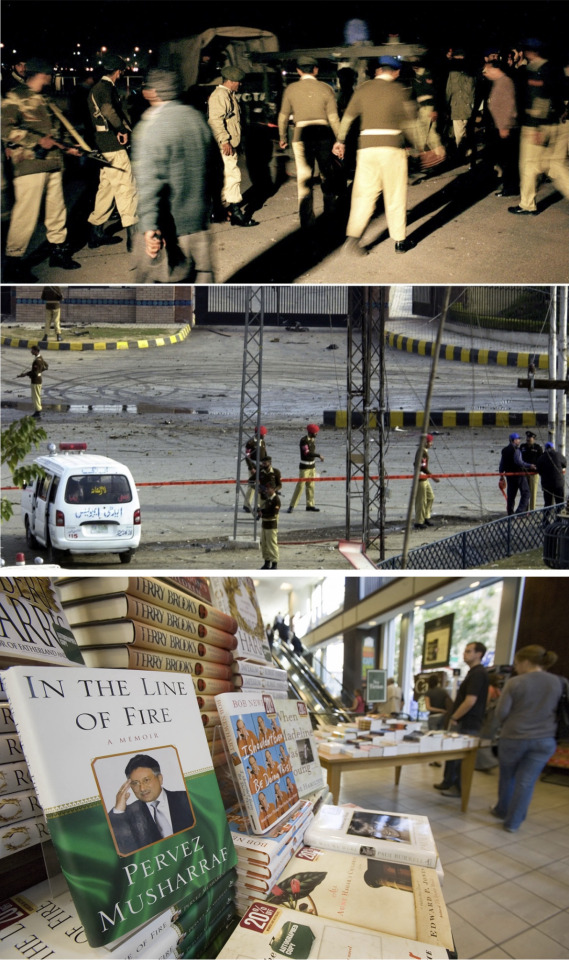
Top: On December 14 and 25, 2003, Musharraf survived two assassination attempts by Al-Qaida in Rawalpindi. (AFP/File) Bottom: Pakistani President Pervez Musharraf launched his autobiography “In the Line of Fire” in New York, United States, on September 26, 2006. (AFP/File)
Musharraf ruled as army chief until 2007 when he quit, trading the military post for a second five-year term as president.
Following the US invasion of Afghanistan after the September 11 attacks in 2001, Washington sought Pakistan's support in the 'War on Terror,' and Musharraf became a close ally of the then US administration of George Bush. He also won mass appeal in the West through his calls for Muslims to adopt a lifestyle of “enlightened moderation.” He also embraced liberal economic policies during his rule that impressed business leaders, brought in foreign investment and led to annual economic growth of as much as 7.5 percent.

Top: President General Pervez Musharraf suspended Supreme Court Chief Justice Iftikhar Chaudhry on allegations of misconduct on March 9, 2007, which sparked city-wide protests in the federal capital Islamabad in the top judge's favor. (PID/File) Bottom: On July 10, 2007, then Pakistan president Pervez Musharraf ordered military troops to storm Lal Masjid, or Red Mosque, to end a week-long siege by seminary students in Islamabad, Pakistan. (Photo courtesy: Daily Pakistan)
He stepped down as president also in 2008 over fears of being impeached by Pakistan’s then ruling coalition. He subsequently left the country but returned in 2013 with the hope of regaining power as a civilian at the ballot box. However, he encountered a slew of criminal charges, and within a year, was barred for life from running for public office.

Top: President Musharraf retired as army chief on November 28, 2007, putting an end to his eight years of military rule. (AFP/File) Bottom: President Musharraf resigned from the office on August 18, 2008. (AFP/File)
In 2016, after a travel ban was lifted, Musharraf left for Dubai to seek medical treatment and has since remained there. In 2019, a special court indicted him on treason charges in absentia, which he denied, and eventually sentenced him to death, though the ruling was later overturned by a higher court.
During his years in power, Musharraf saw many moments of tumult.
In 2006, a popular tribal leader from the southwestern province Balochistan was killed in military action ordered by Musharraf, unleashing an armed insurgency that goes on to date. In 2007, he ordered troops to storm a mosque in Islamabad whose clerics and students were calling for the imposition of Shariah law. The siege led to the birth of an indigenous Taliban movement, the Tehreek-e-Taliban Pakistan, which has since led an insurgency against the government in Islamabad and killed tens of thousands in brazen assaults on security, government and civilian targets.

Top: On March 24, 2013, Musharraf returned to Pakistan after more than four years in exile to contest in general elections. (AFP/File) Bottom: Pakistani security officials examine a long barrelled anti-aircraft gun in Rawalpindi, 06 July 2007, after gunmen fired at President Pervez Musharraf's plane. (AFP/File)
In 2007, Musharraf demanded the resignation of then chief justice of the Supreme Court, unleashing a mass protest movement that massively dented his popularity and started calls for him to step down.
Prime Minister Shehbaz Sharif, who is the brother of three-time former PM Nawaz whom Musharraf ousted in 1999, condoled over the military ruler's death and "sent prayers for forgiveness of the deceased and patience for the family,” the Prime Minister's Office (PMO) said in a statement.

Top: A special court on December 17, 2019, sentenced former military ruler Pervez Musharraf in absentia to death for treason. (AFP/File) Bottom: Azhar Siddique, the lawyer of Musharraf, gestures along with team members outside the Lahore High Court on January 13, 2020 after the court annulled the death sentence handed to the former president, ruling that the special court which had found him guilty of treason in 2019 was unconstitutional. (AFP/File)
Among others who condoled were Chairman Senate Muhammad Sadiq Sanjrani, Pakistan Peoples Party Leader Faisal Karim Kundi, and a senior leader of the Pakistan Tehreek-i-Insaf (PTI), Chaudhary Fawad Hussain, who was for years in Musharraf's party.
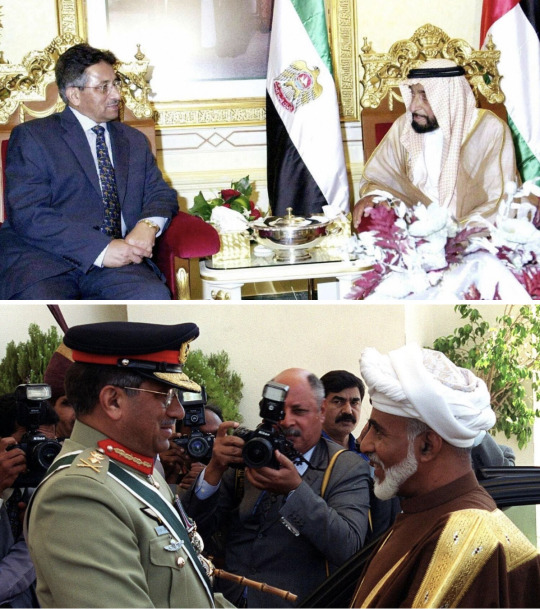
Top: Pervez Musharraf is seen here with late Sheikh Zayed bin Sultan Al Nahyan, former president of the UAE Bottom: Pervez Musharraf meets former Sultan of Oman, Qaboos bin Said Al Said
“I have a long association with him and he always considered me his family member,” he said in a video statement. “Many called him a military dictator but Pakistan has never seen better democracy than his tenure.”
“He led Pakistan in very difficult circumstances and made it a pluralist society. He was a very big person, his friends proved to be small.”

Top: Pervez Musharraf during an interview with Khaleej Times in June, 2018 Bottom: Musharraf is seen addressing the 56th United Nations General Assembly in 2001
0 notes
Video
youtube
Mary Magdalene put life into an Egg telling people that the Gospel is fo... Mary Magdalene put life into an Egg telling people that the Gospel is for the people of discerning intellect. https://youtu.be/min5UjUGXEI Why did Saint Mary Magdalene turn the Egg into Blood Red Colour of Christ? https://youtu.be/DVCccbJk9PU Egg produces birds and they have very strong mind or power to find their nests even if they are released from France, they can fly back to England and to their nests. This is called Discerning intellect that the twice-born are supposed to have. The Egg turning into bright red blood colour means that such twice-born people will be able to Drink the Blood of Christ and be capable of Preaching Gospel from their own hearts and not from the dead letters of the Holy Books, the Scriptures or the Jewish Leaven. I will produce a Youtube Video on this topic. I must stress that you Brother Wynn Manners are no better than the Super Donkeys carrying Holy Books, the University Professors and these hireling Dog-Collared Priests in the Churches that deserve a Millstone to be put around their necks and be drowned - Matt 18v5-7:- 5And whoever welcomes a little child like this in My name welcomes Me. 6But if anyone causes one of these little ones who believe in Me to stumble, it would be better for him to have a large millstone hung around his neck and to be drowned in the depths of the sea. 7Woe to the world for the causes of sin. These stumbling blocks must come, but woe to the man through whom they come!…. Gospel is not for the men of dead letters drunk with the old wine of Scriptures but for the living who are capable of the Brewing of New Wine through logical reasoning. Now, you should know why Easter is celebrated through Easter Eggs that hatched Birds of the Air? Are you a Bird of the Air Brother Wynn? Luke 16v9-15:- The seven demons in Mary Magdalene were the Jewish rituals that bound her and Jesus set her Free. https://youtu.be/QB587Ha9wvg Holy Gospel of our Supernatural Father Elohim, Allah, Parbrahm, etc., delivered First by Jesus, the First Anointed Christ = Satguru of the highest living God Elohim that dwells within our Temple of God called Harmandir or “Emmanuel”. He was the First Anointed Light from our Father and Satguru = Christ Nanak, the Second Anointed Greatest of all the Christs because he had to confront the Kings and Emperors of Darkness of Khatri tribal people (less than one percent Khatris adopted Sikhism against Jatts = Samaritans 70%) against the people of Judah tribe, the Princes of Darkness. Nanak came in 1469 and Preached The Gospel to Perfection through Five more Lights for 150 years. Still, the Darkness created by Satanic Khatris turned Mullahs couldn’t be comprehended... Gur doesn't mean Guru. Satgur means the formula for speaking logical reasoning that Brews = Parsad = Logo. THE GOSPEL IS CALLED “LOGO” AND LOGO IS THE EXTRACT/NECTAR OF “LOGICAL REASONING” – SATGUR PARSAD. Easter:- Reincarnation through works under Yahweh, Dharm Rai whilst Resurrection by Grace of Elohim. https://youtu.be/x3BD1z0Buq0 Hi Brethren, I do not have time to write what I have said but I will put captions in my Video to make it clear. Here are my old productions:- Yahweh, Brahma, Khudah, etc. are the creator, Potters, of visible Nature at large whilst the supernatural "soul" hails from our Supernatural Father God called Elohim, Allah, Parbrahm, etc. Why call Easter? It is the Age of Christ, the Very Son of our Supernatural Father Elohim to teach us https://youtu.be/NHFix6hi8CY Easter is the Time of the Sun, the Primary Source of Light, The Christ, and not for the dead in the dead letters of the Holy Books, the forbidden Jewish Leaven = Milk for the once-born babies. https://youtu.be/qS8q2JEhCPc For the unlisted videos:- www.gnosticgospel.co.uk/Unlisted.htm My ebook by Kindle. ASIN: B01AVLC9WO Private Bitter Gospel Truth videos:- www.gnosticgospel.co.uk/JAntisem.htm www.gnosticgospel.co.uk/JOHN 8V44.htm www.gnosticgospel.co.uk/Rest.htm Any helper to finish my Books:- ONE GOD ONE FAITH:- www.gnosticgospel.co.uk/bookfin.pdf and in Punjabi KAKHH OHLAE LAKHH:- www.gnosticgospel.co.uk/pdbook.pdf Very informative Channel:- Punjab Siyan. John's baptism:- www.gnosticgospel.co.uk/johnsig.pdf Trinity:- www.gnosticgospel.co.uk/trinity.pdf
0 notes